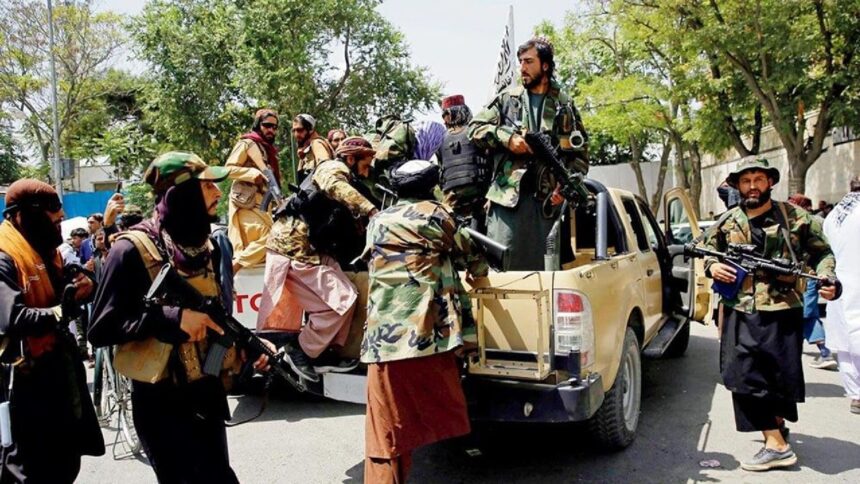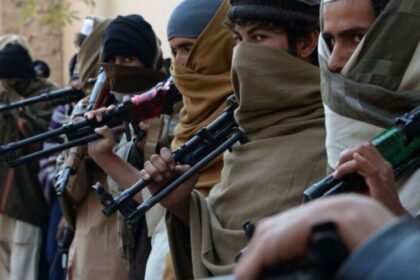RASC News Agency: Once a vibrant city echoing with the sounds of books being read, pens scribbling ideas, and intellectual discourse flourishing in classrooms and cafes, Kabul has today devolved into a city shackled by fear. The capital of Afghanistan, long a symbol of cultural resilience and youthful ambition, has become a silent witness to the systematic repression of its people particularly its youth under the relentless boots of the Taliban. What the Taliban have unleashed in Kabul is not security, but suffocation. Their omnipresent checkpoints, manned by militants clad in black turbans and armed with rifles, do not represent order but embody intimidation. Every street corner now hosts a mobile unit of enforcers masquerading as guardians of virtue. Their actual mission, however, is clear: to suppress identity, criminalize modernity, and terrorize an entire generation into submission.
Each day, dozens of locations across the capital witness young men being stopped at gunpoint. With no legal authority and no justification, the Taliban conduct intrusive physical searches and psychologically abusive interrogations. Their targets are often chosen for superficial reasons—ethnic appearance, hairstyle, choice of clothing, or the mere possession of a smartphone. What follows is often violence, all in plain sight of paralyzed bystanders. The presence of a music file, a photo album, a digital book, or even a basic news app can be enough to justify arrest, humiliation, or assault.
Hamid (pseudonym), a resident of District 6, recounts one such encounter:
“We were four young men walking through Pul-e-Sokhta, all Tajiks. The Taliban stopped us, seized our phones, and combed through our messages, photos even the Quran app. One of them demanded, ‘Why do you read in Persian? Isn’t Pashto the language of Islam?’ Then the beating started. They dragged one of us away. We still don’t know where he is or if he’s alive.” This is not law enforcement it is ideological warfare. The Taliban are not merely policing Kabul; they are actively erasing cultural and linguistic identities that do not conform to their ethno-religious vision. For them, Persian is no longer a language of poetry and piety, but a target. Youthful ambition is no longer a virtue, but a threat. In their eyes, education, individuality, and expression are crimes against their constructed order.
For those who disappear into the Taliban’s shadowy network of detention facilities, the ordeal is even more harrowing. Numerous independent sources confirm that these prisons often improvised barracks, basements, or compounds operate entirely outside the law. There are no formal charges, no courts, no legal representation, and no avenues for appeal. Detainees are stripped not only of their freedom but of their humanity. Food is scarce, medicine nonexistent, and fresh air a distant memory. Even more disturbing is the secrecy surrounding these arrests. Families are rarely notified. Many spend months searching for loved ones, only to discover if they’re fortunate that the detainee is being held in a Taliban outpost for something as trivial as owning a book in Persian. One such case involved a family from District 11, who only learned through a mediator that their son had been imprisoned in Dasht-e-Chamtala for possessing a book on the history of the Persian language. His “crime” was knowledge.
The Taliban’s reign in Kabul is not only repressive it is predatory. Youths who survive their encounters with these checkpoints describe a disturbing pattern: phones confiscated, cash stolen, watches and jewelry seized, and threats issued without hesitation. These armed men, empowered by the absence of any legitimate oversight, function more like extortionists than rulers. They weaponize religion to legitimize theft, assault, and psychological abuse. Ahmad Shah (pseudonym), a student at Kabul University, recounts:
“I was stopped in Karte 3. I had an iPhone. They saw a family photo and called it ‘blasphemy.’ They slapped me, insulted me, took the phone, and said, ‘If we see you again, we’ll cut off your hand.’” This is the justice of the Taliban an unaccountable system of cruelty delivered at gunpoint.
With each passing day, Kabul’s civic fabric unravels. Fear now dictates daily life. Families are forbidding their sons from leaving home. Universities, once crowded with aspiring minds, now echo with emptiness. Streets are deserted. Markets are lifeless. The city, once a beating heart of Afghanistani society, has become a shell. If this campaign of terror continues, there will be nothing left of Kabul’s identity no culture, no discourse, no future. What remains is a city turned into a prison camp, its people suffocating under the tyranny of a group that uses religion not as a moral compass but as a weapon of dominance.
Perhaps the most haunting aspect of Kabul’s descent is the silence of the international community. Where are the human rights organizations, the global media, the world powers that once claimed to care about Afghanistan’s future? The inaction is deafening. The hypocrisy is palpable. And the cost of this indifference is being paid daily by Kabul’s youth those whose only crime is to exist outside the Taliban’s warped ideological mold. Kabul today can be described only as a city strangled by fear. Its youth no longer dream of tomorrow, nor feel secure in the present. All that flows through its veins is the bitter breath of repression a collective gasp that rises from the throat of Kabulistan, only to be swallowed by the silence of a world that refuses to listen.






